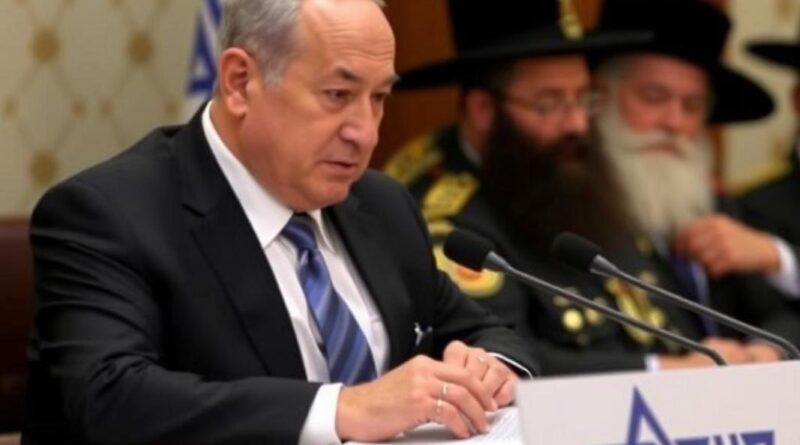Netanyahu Secures Coalition Amid Ultra-Orthodox Military Service Dispute
Netanyahu Secures Coalition Amid Ultra-Orthodox Military Service Dispute
An Avoided Election: Knesset’s Narrow Decision
The recent vote within Israel’s parliament has highlighted the precarious balance of Prime Minister Benjamin Netanyahu’s coalition. A bid to dissolve the Knesset was narrowly defeated, reflecting both the fragility and resilience of Netanyahu’s administration. The 61-53 vote underscored the contentious nature of the coalition’s stability, driven largely by disagreements over ultra-Orthodox conscription policies. This result suggests a temporary alleviation of political crises, but questions about long-term stability remain unanswered.
Compromise Over Conflict: Ultra-Orthodox Exemption Deal
At the heart of the political drama is the ongoing negotiation over military service exemptions for the ultra-Orthodox community. Netanyahu’s ability to strike an agreement with ultra-Orthodox factions signals not just political acumen but also the contentious nature of military service exemptions. By attempting to legislate exemptions into law, the prime minister hopes to mollify both coalition partners and a segment of the electorate, although the compromise continues to be met with criticism from multiple fronts.
Political Fallout: Resignation of Housing Minister
The resignation of Housing Minister Yitzhak Goldknopf from Netanyahu’s cabinet has added layers of complexity to the already tense situation. As a key figure in the ultra-Orthodox United Torah Judaism party, his departure is emblematic of the internal strife that threatens to unravel coalition agreements. Goldknopf’s exit, though symbolic, reflects the broader dissatisfaction within the governing body, emphasizing a critical juncture in coalition dynamics and impacts on religious-political relationships within Israel.
Military Service Debate: Implications on Israeli Society
The exemption debate touches deeper societal issues within Israel, notably the relationship between secular and religious communities. The ultra-Orthodox community, which comprises about 13% of the population, has long enjoyed military service exemptions, viewed by some as a disparity in national service obligations. As tensions in Gaza persist, creating a draw on army resources, the debate on mandatory service and its exemptions sheds light on broader social fractures and the need for cohesive national policies.
Future Outlook: Navigating Political Uncertainty
Looking forward, Netanyahu’s capacity to maintain a stable government amidst these challenges is uncertain. While the current agreement forestalls immediate elections, the underlying issues remain unaddressed. The ongoing geopolitical tensions and internal political strife suggest that this is only a temporary resolution. A broader question lingers: Can Israel achieve a consensus that balances its democratic ideals with the diverse needs of its citizens? You can read more from the original source here. As Israel navigates these turbulent waters, the path ahead will demand careful, strategic decisions from its leaders.
https://eyang-wa.com/wp-content/uploads/2025/06/image-25.jpg
An Avoided Election: Knesset’s Narrow Decision
Compromise Over Conflict: Ultra-Orthodox Exemption Deal
Political Fallout: Resignation of Housing Minister
Military Service Debate: Implications on Israeli Society
Future Outlook: Navigating Political Uncertainty

